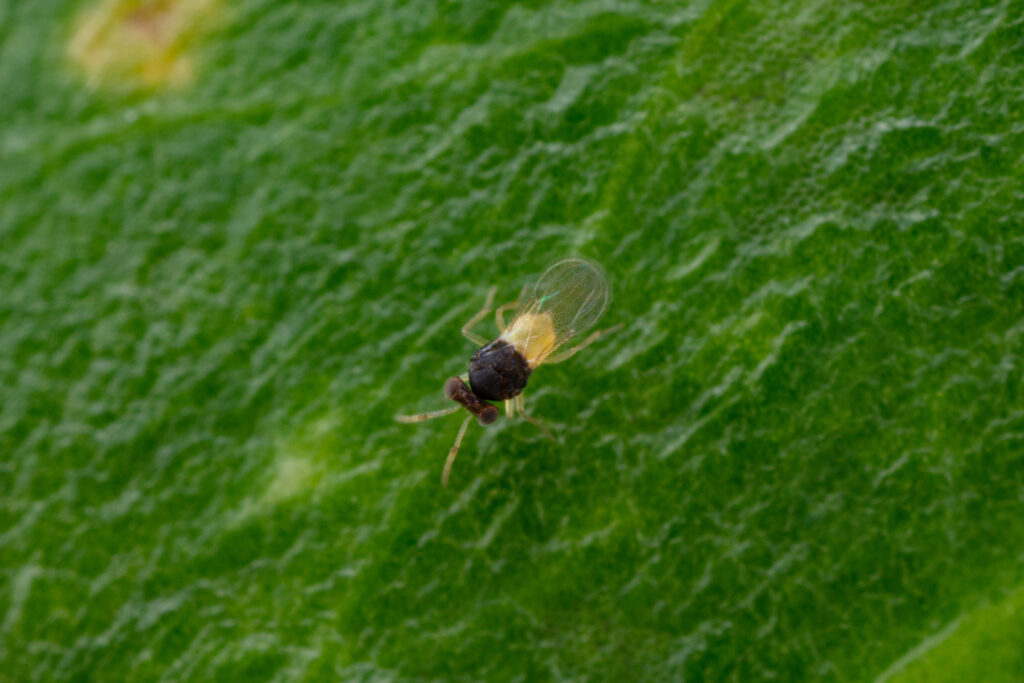
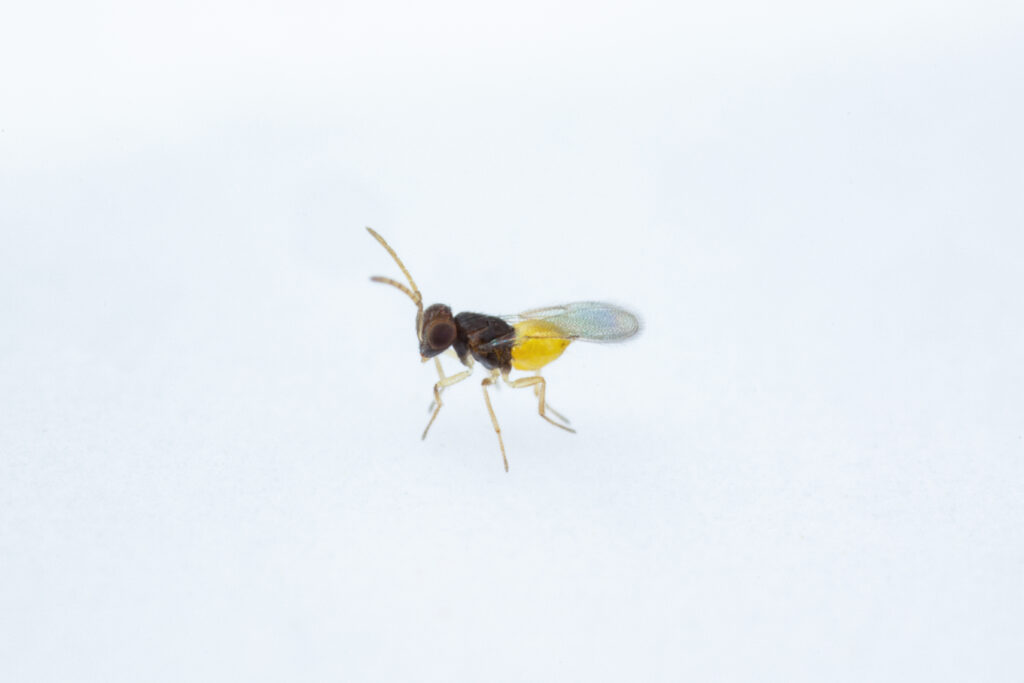
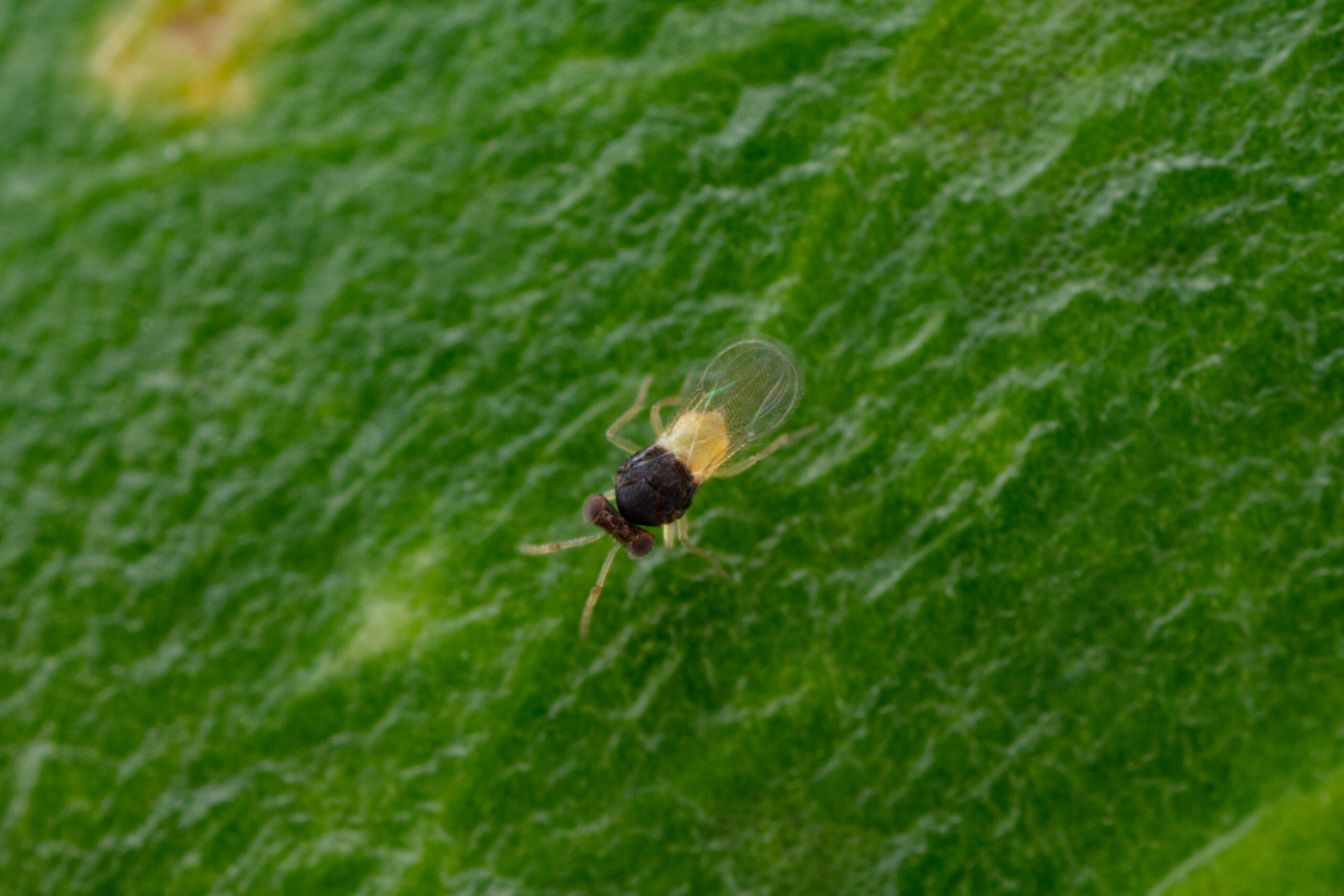
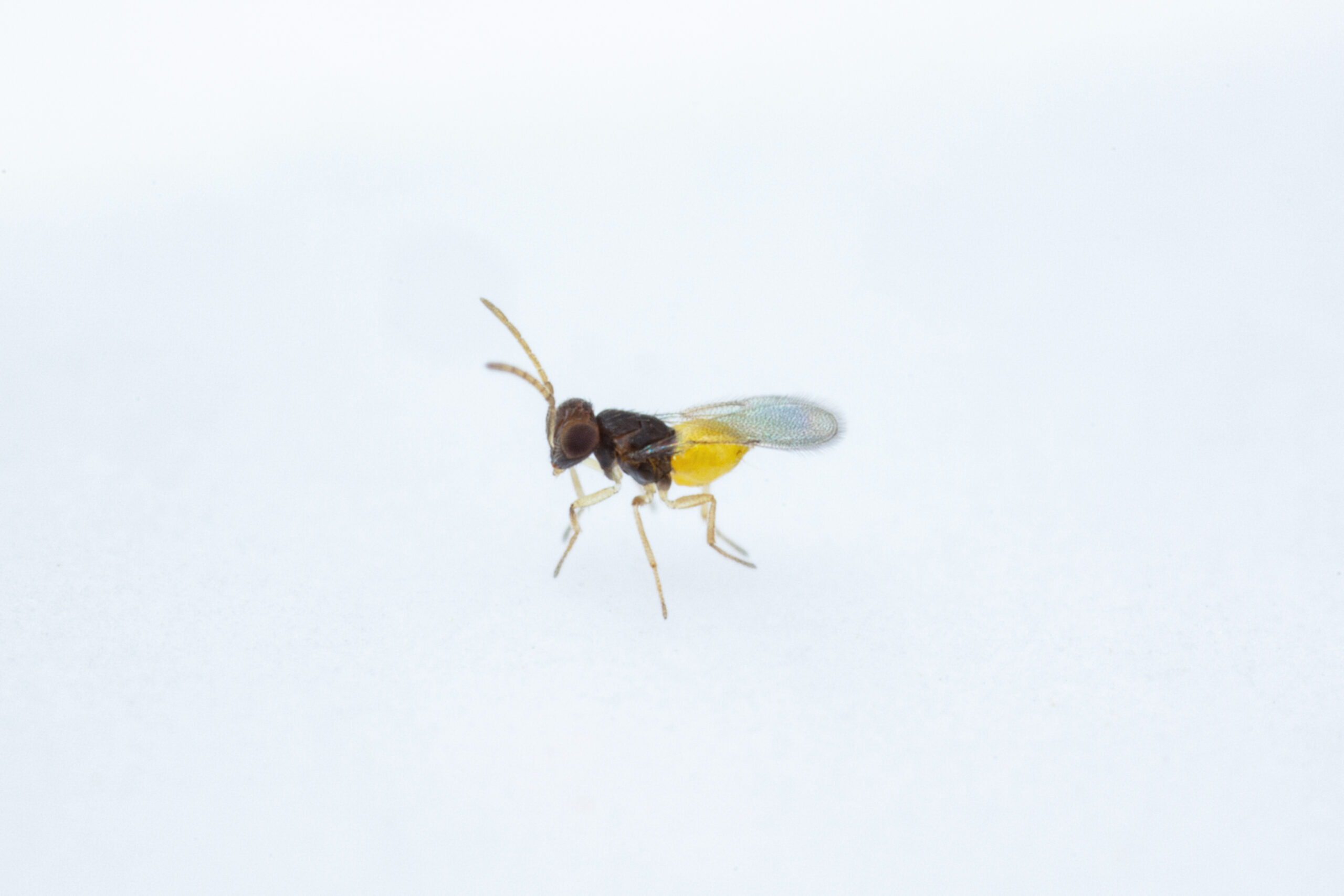
Encarsia formosa
| Description | Format | QTY | Price/each |
| 1,000 pupae | Bottle | Qty | US$ 23.00 |
| 100 pupae per card | 10 cards | Qty | US$ 24.00 |
| 100 wasps per capsule | 10 capsules | Qty | US$ 27.00 |
| 100 wasps per capsule | 25 capsules | Qty | US$ 53.00 |
| 250 wasps per capsule | 10 capsules | Qty | US$ 63.00 |
| 250 wasps per capsule | 25 capsules | Qty | US$ 102.00 |
| Add products to the cart | |||
Attention


Technical sheet
DOWNLOAD IT NOW!Get easy access to all the information on this product by consulting its technical data sheet.

Targeted crops
- Market garden crops:
- Cucumbers
- Eggplants
- Peppers
- Tomatoes, etc.
- Ornamental plants:
- Poinsettia, gerbera, etc.
- Indoor plants

Targeted pests
- Whiteflies (Trialeurodes vaporariorum)

Application Instructions
To ensure maximum effectiveness of Encarsia formosa, it is important that this whitefly parasite not be mixed with other whitefly parasites. Any interference could reduce the parasitism rate and decrease productivity. For extremely fast growing crops where varying instar whitefly levels occur among leaves, mixing may help. Additionally, for optimum conditions when deploying winged-insects such as Encarsia formosa – which are both small and weak fliers – fan speed should be reduced to less than 2 mph while creating still air so they can effectively search out pests.

Storage Instructions
For parasitoids, the importance of freshness cannot be understated. Cold-stored Encarsia are impaired in their ability to differentiate between scale instar larvae and tend to restrict their search for whitefly within a very limited radius from release points. Encarsia has a high requirement for light (7300 lux) and can become less active when temperatures drop below 18°C.
- Do not freeze.
- Do not refrigerate.
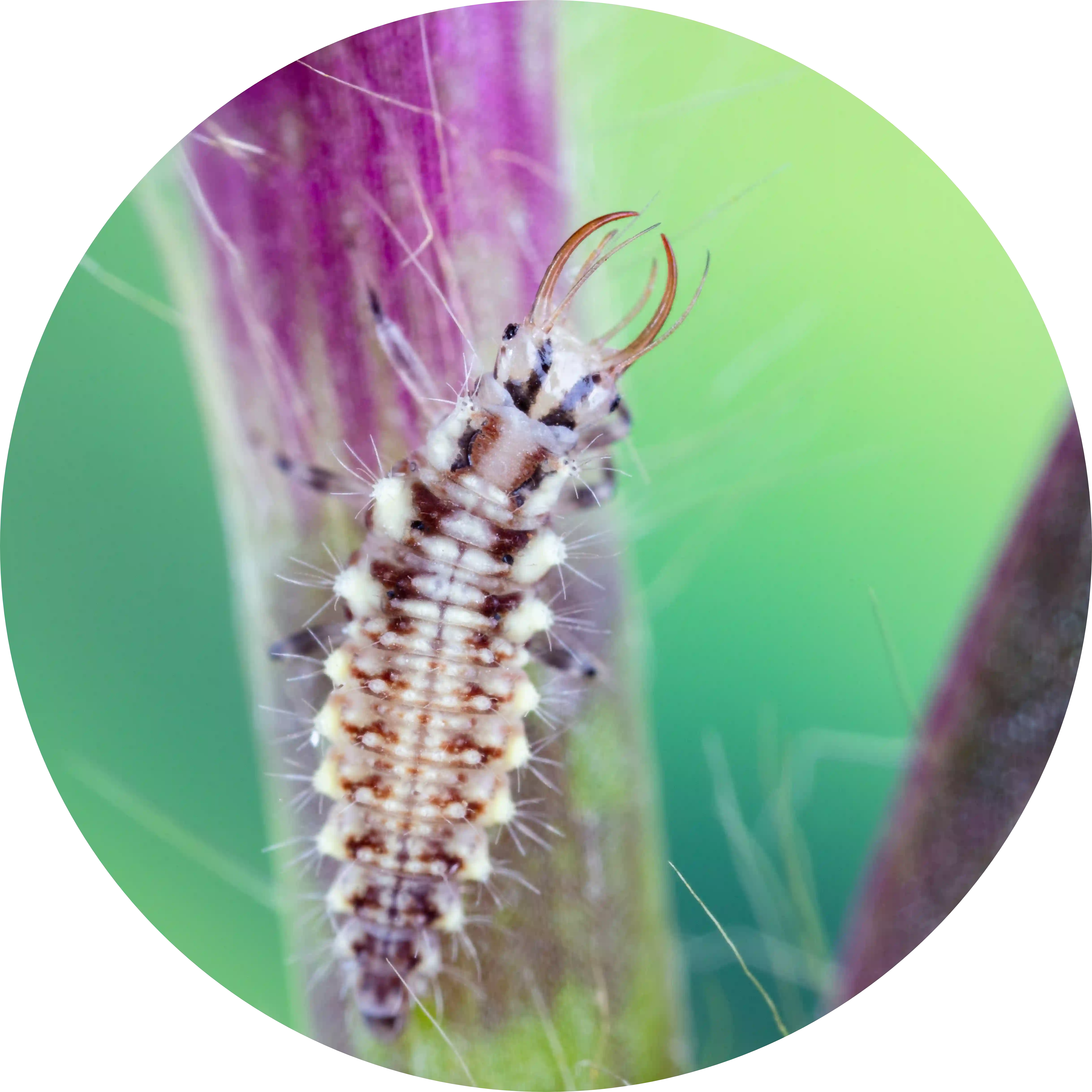


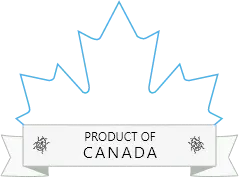
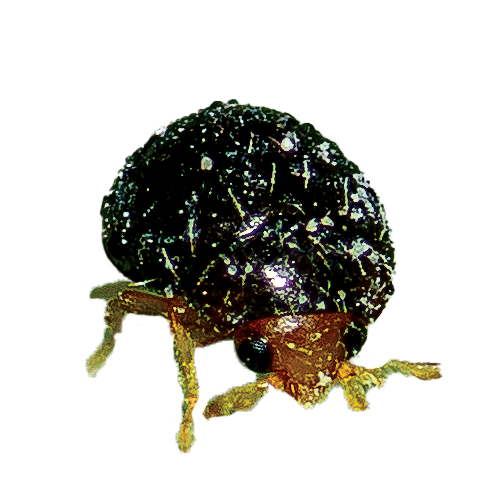
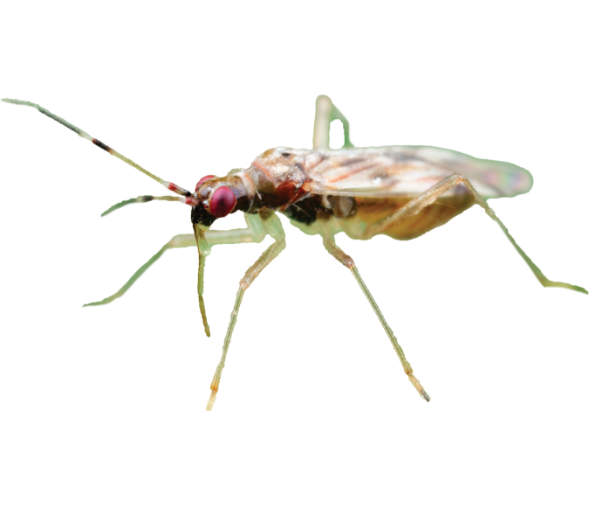
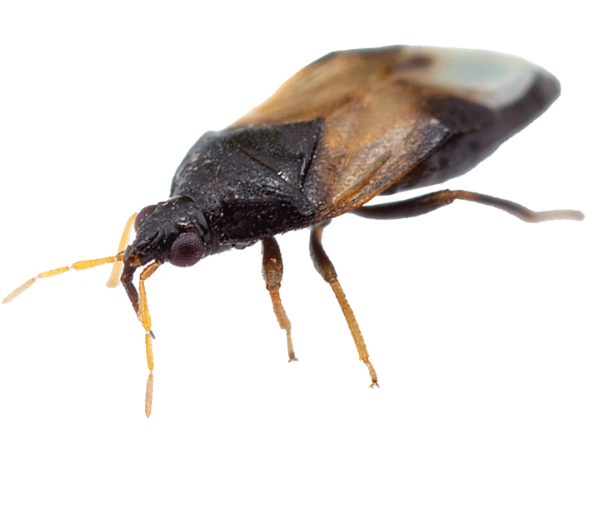
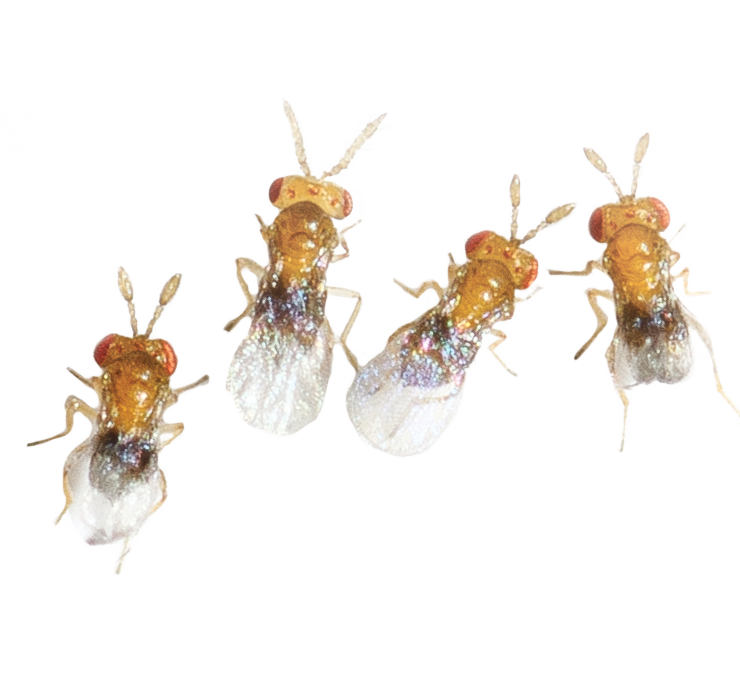
Description
Encarsia formosa is a small beneficial insect that is widely used in organic agriculture to combat whitefly infestations, particularly in tomato, cucumber, and pepper crops. It is an endoparasitoid, meaning it lays its eggs inside the eggs or larvae of whiteflies, and the Encarsia formosa larvae then feed on the inside of their host, causing its death.
WARNING: Ants can cause severe damage to Encarsia formosa pupae, making it critical to monitor and manage them in any aleurodes pest control program. Fortunately, adult Encarsia have a tendency of avoiding leaves with ants present – providing an additional layer of protection against infestations if they appear nearby.